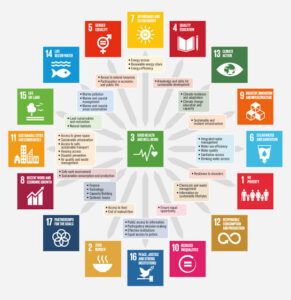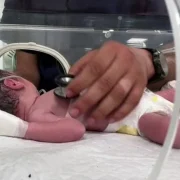Importance of Intergenerational Partnerships for Consensus Building and Succession.
Intergeneration partnerships are vital in growth and development. Decades of work involving community and youth development have acknowledged the responsibility adults have toward improving young people’s lives.
Similarly, the responsibility of young people to contribute to their own and the community’s development. Evidence from developing countries like Kenya shows that young people and adults can build relationships in which they work and learn from each other.
Implementing intergenerational partnerships in development projects has the potential to bring adults and adolescents together in a constructive manner to support gender equality in our country which is a major goal for United Nation’s sustainable development(SDG).
According to UNICEF, each generation must recognize the opportunities, constraints and unique experiences of the other. Through speaking and listening, both generations can clarify and affirm their experiences and perspectives and work toward a common understanding.

Both adults and youth require sensitization and training to understand the perspective of the other. This increases the likelihood that they will work together productively and respectfully and find strategies to work together.
Successful intergeneration partnerships promote skills training for both youth and adults in the technical area of the project, for instance advocating for gender equality hence coming up with ways of promoting UN’s sustainable development goals.
IG strategies actively engage a range of key adults (parents, community leaders and teachers) who together determine girls’ access, retention and success in schools. Many of the adults who participate also gain from girls’ education projects (in terms of increasing their own functional literacy and numeracy).
For intergenerational partnerships to work, developing countries should recognize the interdependence of youth and adult lives and are promoting an intergenerational dialogue to discuss each generation’s unique experiences.
Both generations should be viewed as key stakeholders whose buy-in, ownership and participation are important for project success, as demonstrated by the inclusion of young people and adults in all phases of the project and the appointment of both generations to serve in leadership, decision-making and implementation roles.

In rural settings, intergenerational patterns of socialization are often disrupted as youth migrate to cities, missing opportunities to benefit from the knowledge and guidance of older family members. Such trends pose new demands on family members and test the traditional grandparent-parent-youth relationships.
n 2007 the General Assembly adopted a supplement to the World Programme of Youth, which included Intergenerational Relations as a priority area. Its proposals for action focus on strengthening families, empowering young women and bolstering intergenerational solidarity.
A number of United Nations International Expert Group meetings proposed recommendations on intergenerational issues, including intergenerational solidarity.
The 2009 meeting on “Family Policy in a Changing World: Promoting Social Protection and Intergenerational Solidarity” recommended partnerships and cooperation between youth and older persons organizations, community-based active aging centers, and research on intergenerational transfers to be used in national development plans.
In conclusion, intergenerational partnerships help to build the capacity of both young people and adults hence leading to broader community participation in sustainable development goals.
























Comments